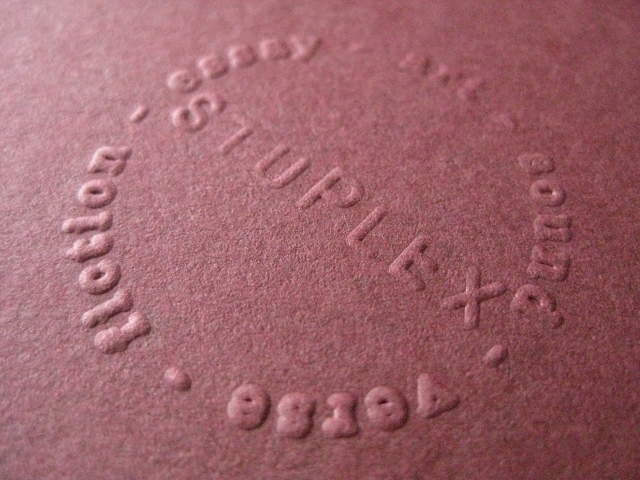British culture can offer few positions more indicative of popular, mainstream acceptance than an afternoon guest slot on BBC Radio 2. Sandwiched between music from the likes of Supertramp and Glen Campbell, it’s a place for people who everybody’s heard of, guests whose easy chat lubricates the working day without unnecessary grit.
Roger McGough’s recent appearance, however, was a little different. As a pillar of today’s poetry establishment – he is president of The Poetry Society and has been honoured with a CBE – McGough has earned his place over six poetry-packed decades. But in the context of a short essay about what it means to be human, he wrapped his soft Liverpudlian rhythms round the subject of death and its ceaseless approach. There was grit aplenty, and it seems likely that many in the audience found that some of it ended up in their eye.
“I did a poem called Big Hugs,” says McGough, referring to a piece that works its way through the people and places he might like to cuddle before he succumbs to the Grim Reaper’s scythe. “It’s like a final poem, a goodbye poem. But afterwards, Jeremy Vine asked me ‘Are you alright? Is anything wrong?’. And I said I’m fine, thanks for asking. It came as a shock to me when he said that. I never thought it would have that effect. It was just me writing a poem. It could have been about cats or football, but it was about death. I realised that when you read a poem like that, people think you’re trying to tell them something.”
Perhaps age has something to do with it. McGough is now in his 80s but his poetry is still associated in many minds with Liverpool’s youthful cultural explosion of the 1960s – a time when the dust was blown off British poetry and it became something that could sit alongside pop music and performance in the nation’s basement dives. Maybe it’s a shock to realise that more than half a century has somehow passed in the meantime.
For McGough though, Big Hugs doesn’t feel like a new departure.
“I’ve always written those things,” he says. “Let Me Die a Young Man’s Death was written when I was 22. You always revisit the same subjects.”
He recognises, however, that his recent collection, joinedupwriting, is full of memory and loss, a mood that tailed him on a recent trip back to Liverpool.
“I always like to walk round when I go there,” he says. “There are ghosts of certain people, places I remember, but there are so many homeless people now in Liverpool and other cities. There’s a sadness there. And I was conscious of not meeting anybody I knew. Usually you see a familiar face. Maybe I was unlucky as I was only there for an afternoon, but, like other cities, everyone was a stranger.”
This dwindling pool of friends and family is an inevitable consequence of advancing years, but it seems certain that McGough’s enduring popularity will still bring plenty of familiar faces to his next city appearance. He performs at Liverpool Playhouse on November 7, the same day that joinedupwriting is published in paperback.
“It’s always good performing in Liverpool,” says McGough. “A lot of the new book is about my school days, with references to places in the city, so I can do poems that I couldn’t do elsewhere without having to explain the background. At the book signings, people come and say ‘My gran used to live there’, or ‘Did you know so and so?’. You don’t get that in London.”
 It was while a student at Hull University in the 1950s that McGough initially began writing poems – “It was a private thing, I wasn’t out to show it to anyone else” – but on his return to Liverpool, he found himself in a city that was flourishing creatively.
It was while a student at Hull University in the 1950s that McGough initially began writing poems – “It was a private thing, I wasn’t out to show it to anyone else” – but on his return to Liverpool, he found himself in a city that was flourishing creatively.
“People were playing guitars and music, and that was exciting, then the poetry thing happened. It was easy to get places to let you do things. Clubs would let you go there on a Monday night when it was closed for music, let you do some poetry stuff.”
The catalyst may have been the Mersey Beat music scene that gifted The Beatles to the world, but the creative chemical reactions continued to smoulder and ignite, throwing out poets, painters and playwrights who inhabited the crumbling Georgian townhouses of Liverpool 8.
“The interest caught on with The Beatles,” says McGough, “but then people would look at everything that was going on and say ‘It’s a good place this, there are painters and poets and people who are full of themselves’. They discovered Liverpudlians, that’s probably what it was.”
If The Beatles were the tip of Mersey Beat’s musical iceberg, in poetry terms it was McGough, along with Adrian Henri and Brian Patten, who emerged as representatives of the thriving scene. In 1967, Penguin published the Liverpool poets’ anthology, The Mersey Sound, and the careers of the three men were made.
“Penguin called it that because they were cashing in on The Beatles,” says McGough. “We were wary of it because it was a marketing thing. We thought we didn’t need that, it was just good poetry, but of course, they were right in a way. It did help us get going.”
 The book was astonishingly successful, introducing the nation to new ways of thinking about poetry.
The book was astonishingly successful, introducing the nation to new ways of thinking about poetry.
“Before we got published, poetry seemed to be about mythical places. That was the language of poetry – Greek gods and stuff. But I was teaching in Kirby in my first job after university, and I started introducing my own poems. These kids didn’t like poetry, but when I mentioned a street they knew – Lime Street or somewhere – or did a poem that mentioned Everton or your granny, they came alive at that.”
In the decades since then, McGough has written about everything from school days, war and Batman to, most recently, Jodie Comer’s Killing Eve character, Villanelle (as well as being a mesmerising TV assassin, a villanelle is a form of poetic verse). One subject, however, has remained absent until now, with the recent poem Where is My Mother? finally giving voice to his thoughts about his mum – or, as he poignantly refers to her, “The one I aim to please with every poem I write”.
Was he always aware of her absence from his writing?
“I was, yes. I was very close to my mother, like a lot of sons are. I was her favourite, the one that was pushed on – ‘My son’s bright, he’s going to go to college’. She was very lovely. But my dad – he died when he was in his 50s, just after I’d gone to university. I was a puzzle for him because he never quite understood what I did. He was a docker, a strong man, a good, kind man, but I wasn’t any good at football or boxing. I was always writing poems about him because I never got a chance to sit down in a pub, have a drink and talk about it with him.
“Mum though, I never wrote about her because I never needed to. So I was thinking about that. I was always sort of doing it for her, because your mother’s always central to whatever you do really. You don’t want to let her down.”
 I wonder if his willingness to deal with memory and loss in his work makes the growing absence of much-loved family and friends easier to bear.
I wonder if his willingness to deal with memory and loss in his work makes the growing absence of much-loved family and friends easier to bear.
“I think it probably does,” he agrees. “I always say that writing is good for your mental health. Luckily, I’ve never had any problems there, and you always think maybe it’s because you’re able to deal with it out front. I don’t know. But it is a way of putting it into words and facing up to things.”
He seems alive to the possibility that sometimes, he may stray into sentimental territory, but then wonders aloud whether that’s even such a heinous crime. Referring back to Where is My Mother?, he says: “You’ve got to be careful as that poem borders on the sentimental. But I’m sentimental and I don’t mind that really, and I wonder how much of a Liverpool poem that is. It’s very sentimental, a bit soppy. But I think its heart’s in the right place. And if you get the words in the right place, you’re OK.”
Or in McGough’s case, you’re more than OK. You’re one of the nation’s most successful and beloved living poets.
It seems certain that his mum and dad would have been more than happy about that.
Images by Nick Wright Photography
Roger McGough’s tour continues with northern dates at Liverpool Playhouse (November 7) and Chester Storyhouse (November 15). joinedupwriting is out now in hardback and is published in paperback on November 7, 2019.











